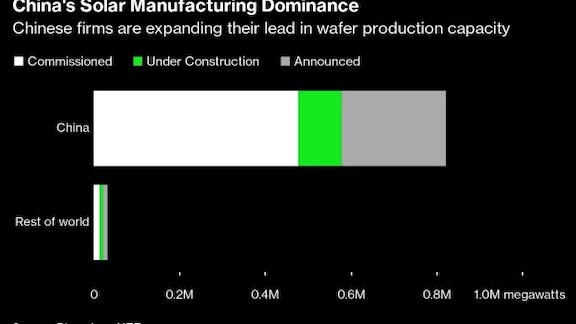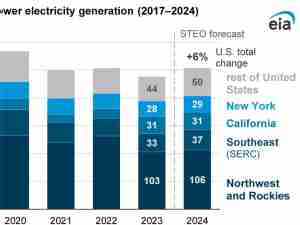China is considering an export ban that would help the nation maintain its substantial dominance in solar manufacturing just as other countries are trying to strengthen their industries.
China’s Ministry of Commerce and Ministry of Science and Technology are seeking public comment on adding some manufacturing methods key to producing advanced solar wafers on to its list of technologies it prohibits exporting. Wafers are ultra-thin silicon squares that are pieced together into solar panels, and China accounts for 97% of global output.
The move underscores the growing strategic importance governments are placing on solar manufacturing as the technology becomes the planet’s biggest source of new energy. Countries from the US to India are trying to develop domestic supply chains to chip away at China’s advantage.

“Beijing and the market leaders in China’s solar industry are undoubtedly worried about efforts from the US, EU, and India to develop homegrown solar manufacturing industries, so these recent tech export controls may very well be a response,” said Cosimo Ries, an analyst with Trivium China. “Beijing is looking to slow down the speed at which its competitors can develop their own supply chains.”
The move is still in the public consultation phase and no decisions have been made yet. Still, it’s coming just months after the US passed the Inflation Reduction Act, which includes subsidies for clean-tech manufacturing and has spurred a spate of announcements for new factories.
Chinese firms have spent the past decade developing cutting-edge technology to produce bigger, thinner wafers that have played a big part in reducing the cost of solar power by more than 90%. If foreign manufacturers have to use older wafers, it will diminish the cost competitiveness of their panels, Ries said.
Considering China’s dominant position in wafers and the segment’s relatively high barriers for entry, it’s reasonable for China to consider the ban to avoid leaking technology to overseas players, Daiwa Capital Markets analysts said in a research note Thursday.










